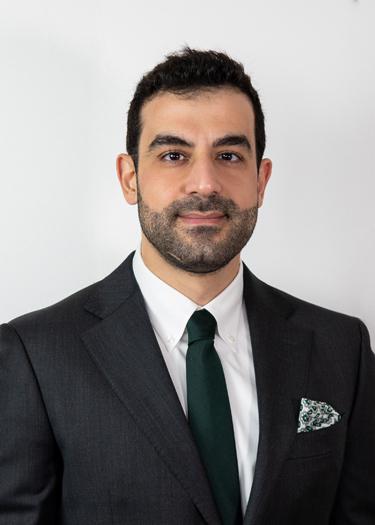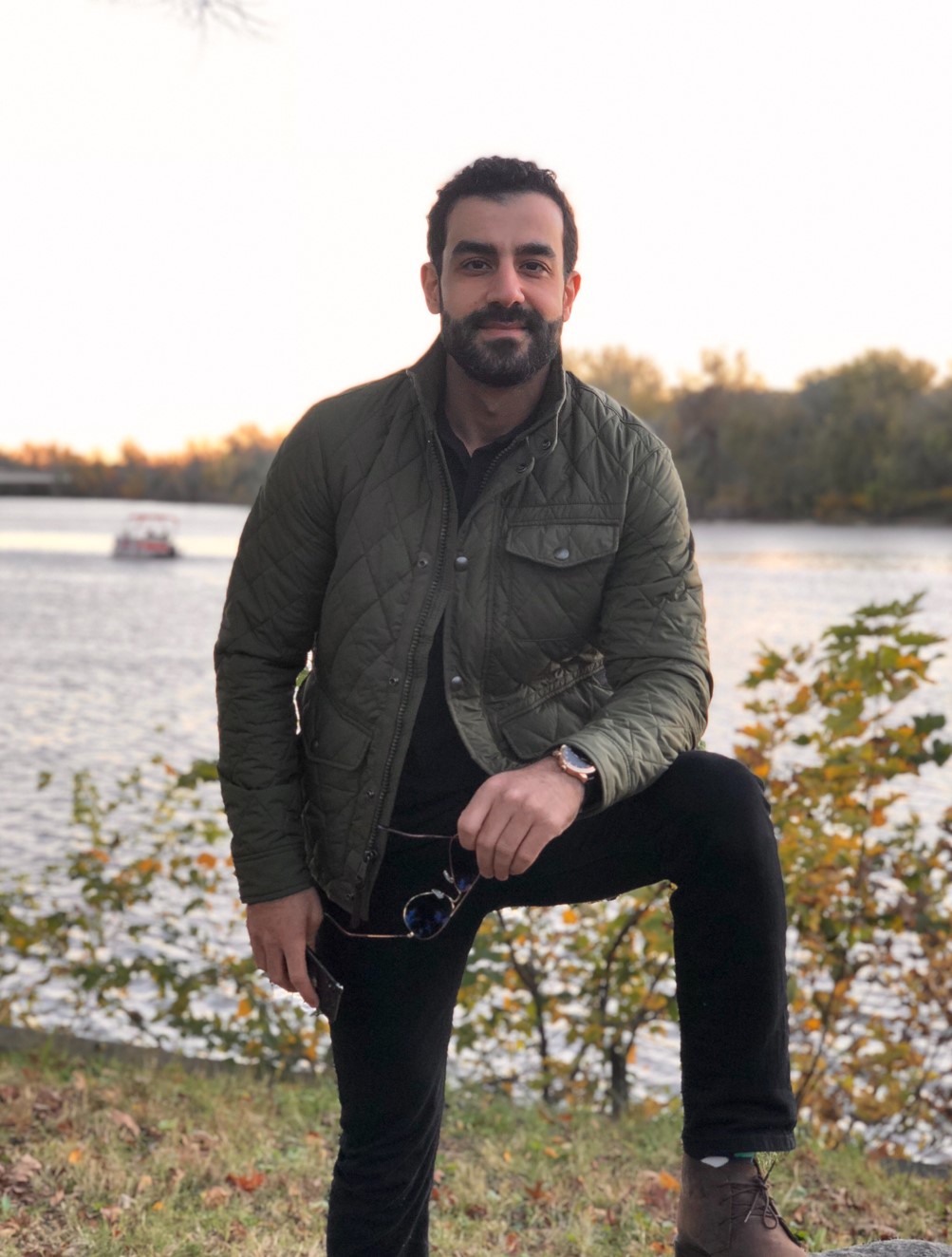
In the suburbs of Damascus, where Ahmad Zamzam, MD, grew up, a local expression translates to English roughly to “Stroke? Don’t even bother with treatment.” Disturbed at the lack of options reflected in this phrase, Zamzam decided he wanted to make a difference. Now, Zamzam is acting as a “pre-tending” member of our stroke service as one of our vascular neurology fellows. In this week’s Spotlight interview, Zamzam talks to us about the everlasting chase of localization that brought him to neurology, his plans to establish his own practice, and being mesmerized by watch-making when he’s not at work.
What are your current responsibilities as a vascular neurology fellow? What does a typical day look like for you?
I typically start my day early with some baklava and Turkish coffee as I go through tests and imaging that were done overnight for patients on the stroke service. I visualize a plan for the day and then drive to work. As a stroke fellow, my responsibilities include leading the inpatient stroke service at DUH as a "pre-tending" and creating an educational environment for all the team members. We have the most amazing people in the world!
How and when did you get interested in neurology?
Neurologists and their everlasting chase of "localization"- we run around looking for the part(s) of the nervous system that might be broken, visualize the possible neurological deficits based on the location of the part(s) we think are broken, and then we try to treat also based on the location of the part(s) we think are broken. As you see, this requires a lot of imagination and mental drawing of models and figures. All in an effort to “localize.” This is in essence, cartooning. My favorite hobby. Hence my passion for neurology.
How did you decide to specialize in stroke and vascular neurology in particular?
There is a metaphor from my little hometown in Al-Nabek in the suburbs of Damascus, Syria, that translates from my native language to English to: “stroke? oh, don't even bother treating.” The analogy of stroke there to being a condition that is untreatable always disturbed me growing up. Especially after losing loved ones to stroke. I decided that there is a greater room for faith and hope in treating stroke and that I will make a difference.
Besides that obvious difference you mentioned, how do the trends in stroke incidence, treatment, and recovery in Syria compare to those in the United States?
Stroke is a poorly understood disease entity in Syria. As such, I can imagine it would be difficult to quantify stroke incidence and impact there. Most of it stems from the poor emphasis on preventative medicine (primary or secondary), and the lack of resources for rehabilitation. Patients suffering from heavy deficits end up being discharged home, rather than being discharged to acute rehab or skilled nursing facilities. This pretty much eliminates their chances of appropriate recovery and care. It also adds a further burden on those families that are already struggling socioeconomically. All those factors, and more, add up to shape that defeatist outlook of the community towards stroke. I am determined on building a better future for all through collaborating with other aspiring healthcare providers towards a much-needed change.
What plans do you have for after you complete your fellowship?
Go on a world tour before starting my practice, starting in Istanbul, Turkey.
Where do you hope to establish your practice?
It really depends on where I am in my professional career. For now, I would like to practice somewhere with an access to a major international airport with inbound-outbound worldwide destinations. Being able to take direct flights to visit my family in Canada and the Middle East, and vice versa, is such a convenience.
If you could have any job in the world, what would it be?
An expert Mediterranean-food taste-tester.
What’s one experience from your time as a fellow so far that’s been especially memorable or useful for you?
Working with great experts from different departments to help patients suffering from CRAO recover their vision. The availability of a multitude of treatments from IV tPA to hyperbarics to the phenomenal nursing care is really heartwarming to me.
What do you enjoy most about your work?
The amazing friendships and all the learning here at Duke.
What’s the hardest part of your job?
Knowing that there are communities out there that are still not within a timely reach to a comprehensive stroke center. I am optimistic about the future of stroke education and treatment, and the outreach of care.
What other passions or hobbies do you have outside of the Department?
I enjoy all things horology. I spend hours reading blogs and watching vlogs about watches. I can talk nonstop about the art of mechanical watch making and functioning. It is an art at its finest. So mesmerizing!

Zamzam shared this photo of himself in Georgetown, Washington DC on Match Day.